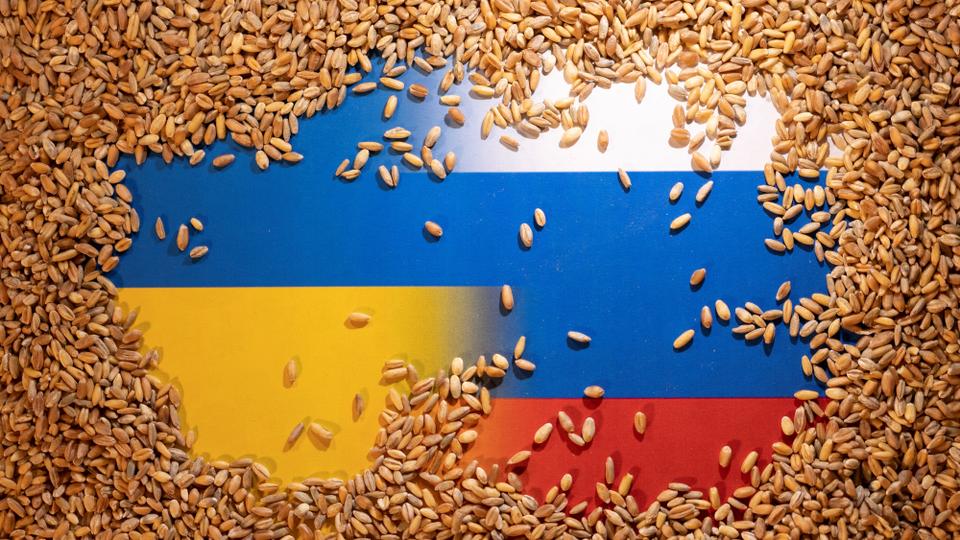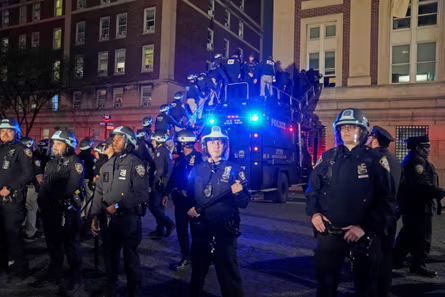In a game of diplomatic cat and mouse, Russia and the west are coming up with similar if sometimes competing ideas for how Ukraine’s badly needed grain can be given safe passage through the Black Sea and on to the world markets. They are also competing to win the battle for world opinion if the plans collapse.
Both sides are busy diplomatically across Africa and the Middle East trying to portray their adversary as the culprit for spiralling food and fertiliser prices. Russia and Ukraine export more than a quarter of the world’s wheat, while Russia is the world’s top fertiliser exporter. The World Bank’s Fertiliser Price Index rose nearly 10% in the first quarter of 2022, to an all-time high in nominal terms.
Ukraine’s backlog of 20m tonnes of grain needs to be exported quickly to avoid a further explosion of food prices, and also to preserve the next Ukrainian harvest that currently cannot be sent to already full storage facilities.
That is not possible due to the Russian naval blockade of the Black Sea port of Odesa, and Ukrainian floating mines planted to block the port from Russian attack. Russia, in return for lifting the blockade, wants any sanctions on its shipping and fertiliser products lifted. At issue is whether there is a deal to be done.
In what is beginning to look like the main plan, the Russian foreign minister, Sergei Lavrov, has agreed to meet the Turkish president, Recep Tayyip Erdoğan, but not until 8 June, over proposals for Turkey to de-mine Odesa and then escort grain ships through to the Bosphorous along a naval corridor. Erdoğan spoke with Vladimir Putin about the proposal on Monday, and according to the Turkish read-out, Putin was willing to cooperate, on conditions.
Turkey, through the 1936 Montreux convention, is arbiter of sea traffic in and out of the Black Sea, and justifies its refusal as a Nato member to impose sanctions on Russia by pointing to this unique role. The Turkish foreign minister, Mevlüt Çavuşoğlu, said on Tuesday that food security was the most important question: “We are focusing on this. We are planning to establish a centre in Istanbul to observe the corridor.”
A combine harvests barley in a field near the village of Zhovtneve, Ukraine
UK backs Lithuania’s plan to lift Russian blockade of Ukraine grain
Within Europe, the Italian prime minister, Mario Draghi, has taken the practical initiative, discussing the issue first with Joe Biden a fortnight ago then last week holding talks with the Ukrainian president, Volodymyr Zelenskiy, then Putin and then Zelenskiy again.
The Ukrainians have said they are willing to see Odesa de-mined, but conditions would have to be set on how the Russian navy would not use the clearance of mines as an opportunity for its warships to move closer to the port. Ukraine’s foreign minister, Dmytro Kuleba, said: “We must be very careful, because a unilateral guarantee from the Kremlin is not enough. We need third countries to take responsibility for enforcing the agreement.”
Italy and the UK have offered to undertake the de-mining operation, something that could take a fortnight, but Turkey may be Russia’s preferred choice to complete this perilous task.
According to Draghi, Putin has indicated that he would open access to Odesa provided valid checks could be made to ensure the grain ships were not carrying weapons for use by Ukraine. Unresolved issues also exist about the nationality of the ships escorting the convoy, and their terms of engagement if threatened by Russia.
According to Moscow, Putin noted the “readiness of the Russian side” to facilitate the unhindered sea transit of goods in coordination with Turkish partners.
But Russia also wants in return the lifting of western sanctions on Russian fertilisers, something Draghi says is also being urged on the EU by Africa and warrants a second look.
The US is also showing some flexibility. Its ambassador to the UN, Linda Thomas-Greenfield, said the US was prepared to give “comfort letters” to shipping and insurance companies to help facilitate exports of Russian grain and fertiliser.
She insisted that Russian grain and fertiliser were not under US Treasury sanctions but that “companies are a little nervous and we’re prepared to give them comfort letters if that will help to encourage them”. She stressed this was not a bargain to get the Russian blockade of the port of Odesa lifted.
At the moment, the UK and the EU may be heading in contradictory directions by coordinating a ban on insurance for ships carrying Russian oil anywhere in the world. Distinguishing insurance for grain as opposed to oil ships is feasible, but could prove a complicating factor.
One possibility is that Rebecca Grynspan, a senior UN official – recently in Moscow for talks on the issue – could help negotiate a draft security council resolution backing the humanitarian corridor, an idea backed by the French president, Emmanuel Macron. One western official said: “It is unlikely even Russia could veto a resolution to feed the world simply because Russian demands on the lifting of sanctions had not been met.”
Draghi is not opposed to the UN involvement but has fears about the pace of progress. He said: “It can play an important role in resolving the crisis, but we have a duty to ask ourselves how we can help. How to accelerate, to avoid arriving late.”
However, the UK, Poland and Baltic states are sceptical that Putin will ever agree. Britain backed Lithuania’s proposal for a similar convoy plan, but one that did not depend on Russian cooperation. It proposed a coalition of the willing – not a Nato force – to escort ships.
Egypt, one of the many middle- and lower-income countries heavily dependent on Ukrainian and Russian grain, was mentioned as a possible member of the coalition. The plan certainly seemed to gain favour with the hawkish UK foreign secretary, Liz Truss, when she met the Lithuanian foreign minister, Gabrielius Landsbergis. It was significant that Poland’s president, Andrzej Duda, made a rare visit to Cairo this week to discuss the grain crisis.
READ ALSO: US: Gunman kills at least three in Tulsa, Oklahoma
But Gen Mark Milley, the chair of the US joint Chiefs of Staff, struck a cautious note in London on Tuesday, saying: “To open up those sea lanes would require a very significant military effort.” If policymakers opted for it, “it would be a high-risk military operation that would require significant levels of effort”, he said. It is for that reason Draghi, Macron and the German chancellor, Olaf Scholz, felt that it was necessary to test Putin out.
If none of the sea-route options works, the only alternative is to intensify the use of existing and much more expensive routes that take grain on trucks through Poland to Baltic and Polish ports, or on barges down the Dnieper River to Romanian ports and finally via train to Poland. The option of taking grain by train through Belarus looks impossible due to Minsk’s demands for sanctions on potash to be lifted.
At the main crossing point into Romania there is a 20km backlog of trucks waiting to be inspected. A queue of 100 barges were at the Dnieper River waiting to get to the Black Sea. Only seven vessels were being cleared a day.
Apart from the humanitarian necessity to avoid famine, Draghi regards the risks to the west of spiralling bread prices, in terms of migratory flows, terrorism and political instability, as real and imminent. As one Italian official put it: “We have two weeks left to sort this or we face something very grave.”
Russia’s invasion of Ukraine has abruptly transformed the world. Millions of people have already fled. A new Iron Curtain is grinding into place. An economic war deepens, as the military conflict escalates, civilian casualties rise and evidence of horrific war crimes mounts.













